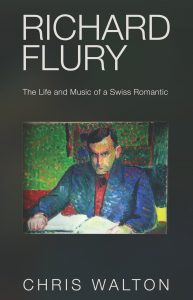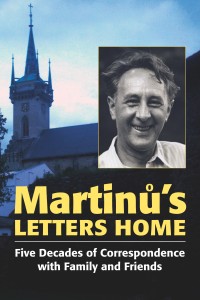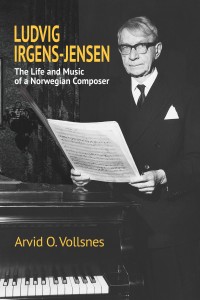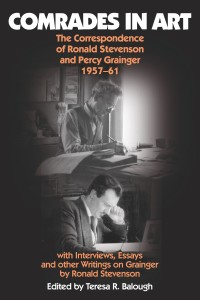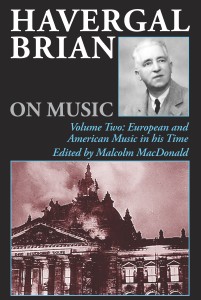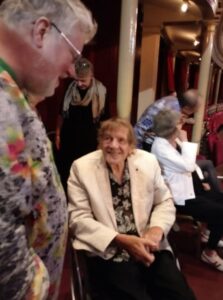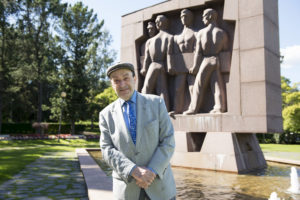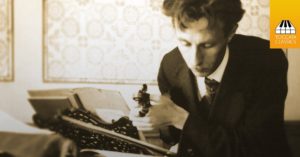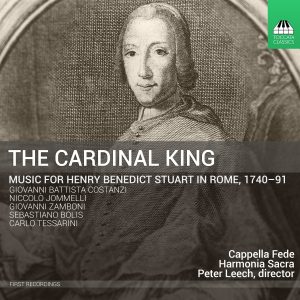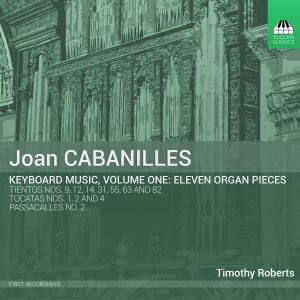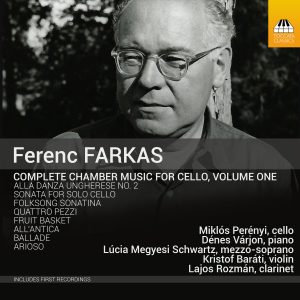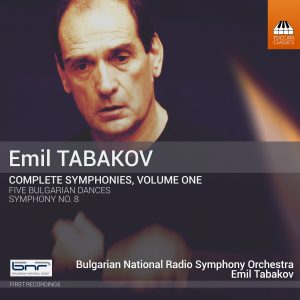Search Results for "Space Wolf: The First Omnibus mp3 torrent" – Page 24
Richard Flury: The Life and Music of a Swiss Romantic
Author: Chris Walton
Extent: 328 pages
Size: 16 x 24 cm
Published: March 2017
Illustrations: 22 colour illustrations; 51 b/w illustrations
Martinů’s Letters Home: Five Decades of Correspondence with Family and Friends
Edited by Iša Popelka
Translated by Ralph Slayton
ISBN: 978-0-907689-77-5
Extent: 245 pages
Size: 16.4 x 24.1 cm
Published: March 2013
Composition: Royal octavo
Illustrations: 52
Ludvig Irgens-Jensen: The Life and Music of a Norwegian Composer
Extent: 368 pages
Composition: Royal octavo ~ Illustrations ~ LoW ~ Irgens-Jensen as Poet ~ Bibliography ~ Discography ~ Index of Irgens-Jensen's Music ~ General Index ~ Sampler CD of Irgens-Jensen’s Music
Comrades in Art: The Correspondence of Ronald Stevenson and Percy Grainger, 1957-61, with Interviews, Essays and other Writings on Grainger by Ronald Stevenson
Ronald Stevenson, Percy Grainger
Edited by Teresa R. Balough
Extent: 300 pages
Composition: Royal octavo
Illustrations: 45 b/w
Havergal Brian on Music: Volume Two: European and American Music in his Time
Edited by Malcolm MacDonald
Extent: 458 pages
Composition: Demy octavo ~ Index
A Conversation with Per Nørgård
The death of Per Nørgård on 28 May 2025, at a grand old 92, sent me to my ‘article bank’, to look over my writings…
Too Many Symphonies? — Part two: Fridrich Bruk
Having traversed the symphonies of Robert Keeley in Part One of this brief survey (Too Many Symphonies – Part One – posted on 9 March…
Toccata e due CD: Rediscovering Early Martinů – Part III
Volume One of the Martinů Early Orchestral Works series brought much satisfaction to all involved. Martin Anderson was delighted by the quality of the new…
George Frederick Pinto: Complete Sonatas for Piano and Violin
George Frederick Pinto (1785–1806) is one of the major ‘what-ifs’ of music history: a child prodigy both as performer (on violin and piano) and as composer, he was only twenty when he died, probably from tuberculosis or from what one writer called ‘dissipation’. But the music he composed in the little time he had reveals a composer as gifted as almost any of his contemporaries. These three quirky and inventive violin sonatas – receiving their first recordings here – sit on the cusp of Romanticism, their Classical elegance warmed by a graceful lyricism that looks forward to Schubert.
Kenji Fujimura, piano
Elizabeth Sellars, violin
The Cardinal King: Music for Henry Benedict Stuart in Rome, 1740-91
The music recorded on this album presents for the first time the hitherto forgotten repertoire composed by the many musicians associated with, and employed by, Cardinal Henry Benedict Stuart (1725–1807), a grandson of King James II of England and VII of Scotland, the brother of ‘Bonnie Prince Charlie’, and the last in the direct line of Jacobite succession. Sitting on the cusp of the Baroque and the Classical, these pieces likewise tread a delicate path between innocence and grandeur, between charm and formality, and suggest that the Cardinal, for all his power, may have been a rather gentle man.
Cappella Fede
Harmonia Sacra (Tracks 10, 17)
Peter Leech, director
Joan Cabanilles: Keyboard Music, Volume One: Eleven Organ Pieces
Much of the music of Joan (or Juan) Cabanilles (1644–1712) is as virtuosic and colourfully Baroque as that of his northern contemporary, Dietrich Buxtehude, though it is also touched with a distinctively Spanish intensity. He is claimed as the most prolific of all composers for the organ, and publication of his works, begun in 1927, is still under way. The surviving manuscripts can be seriously corrupt, requiring extensive editing and sometimes even detailed recomposition. This is the first in an ongoing series of recordings designed to restore a great Valencian master to his unique glory.
Timothy Roberts, historic organ (1724) of the Basilica of Sant Jaume, Vila-real (Castellón/Valencia)
Joseph Woelfl: Piano Music, Volume One
Joseph Woelfl (1773–1812), a friend of the Mozart family from childhood, was one of the best-known musicians of his day: he was regarded as a rival of Beethoven in Vienna and a worthy successor to Haydn in the musical life of London. His late-Classical piano music sits between Mozart, Haydn and Clementi and looks forward to Schubert and Mendelssohn. This first-ever project to examine it in any detail hopes to rescue Woelfl’s once starry reputation from the folds of history.
Adalberto Maria Riva, piano
Ferenc Farkas: Complete Chamber Music for Cello, Volume One
Toccata Classics continues its exploration of the music of the Hungarian composer Ferenc Farkas (1905–2000) with this first of two releases of his chamber works for cello. As with previous albums in this series, the music here features the characteristics that make Farkas’ music so appealing: catchy tunes, transparent textures, buoyant rhythms and a fondness for Baroque forms and folk-dances. Some of these pieces speak a tougher language that show Farkas to have been in touch with his times, but it is the infectious melodic appeal of most of the music here that carries the day.
Miklós Perényi, cello
Dénes Várjon, piano (Tracks 1 – 8 , 12–28)
Lúcia Megyesi Schwartz, mezzo-soprano (Tracks 17 – 28)
Kristóf Baráti, violin (Tracks 17 – 28)
Lajos Rozmán, clarinet (Tracks 17 – 28)
Joachim Raff: Complete Music for Cello and Piano
This is the first time that the complete music for cello and piano of the Swiss-born Romantic Joachim Raff (1822–82) has been recorded in its entirety. All the pieces here – including one of his major chamber works, the Sonata for Cello and Piano of 1873 – underline the importance of melody in Raff’s music: this anthology is a treasure trove of lovely tunes, which Raff can spin with Schumannesque urgency and Schubertian charm.
Joseph Mendoes, cello
Taeyeon Lim, piano
Emil Tabakov: Complete Symphonies, Volume One
The Bulgarian Emil Tabakov (b. 1947) follows in the footsteps of such musicians as Gustav Mahler and Richard Strauss, being active as both composer and conductor. Like Mahler, he prefers to write for large forces and now has nine symphonies to his name. Again like Mahler, Tabakov’s symphonies explore the darker side of the human spirit in epic scores as austere as they are powerful. In the atmospheric and expansive Symphony No. 8 (2007–9), the dynamism suppressed in the first two movements is released in a cathartic discharge of energy in the finale. The ebullient Five Bulgarian Dances provide a complete contrast, taking Balkan folk-rhythms as the basis for their pile-driving vigour.
Bulgarian National Radio Symphony Orchestra
Emil Tabakov, conductor
Beat Furrer: Works for Choir and Ensemble
The music of Beat Furrer, Swiss-born (in 1954) and Vienna-based, has long attracted attention for its subtle exploration of the possibilities of the human voice. This first recording of his enigmas, a cycle of six a cappella settings of Leonardo (he has since added a seventh) demonstrates its striking emotional range, from rich, almost Romantic tonal warmth to dramatic avant-garde expressionism. It is complemented by two works which underline Furrer’s fondness for exploring sonority, timbre and texture.
Helsinki Chamber Choir
Uusinta Ensemble
Nils Schweckendiek
Stay In the Know
JOIN THE TOCCATA NEWSLETTER
"*" indicates required fields
By visiting our site, you agree to our privacy policy regarding cookies, tracking statistics, etc.
